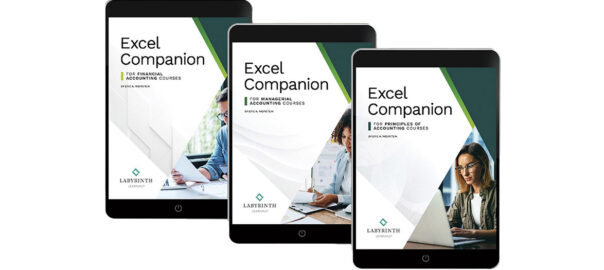By Eric Weinstein
This article explores the upcoming Excel supplements for existing Financial, Managerial, and Principles of Accounting courses, available for classes in June 2024.
As accounting educators, we strive to prepare students for their careers, and we’ve long appreciated the importance of ensuring that our accounting students are well trained in Microsoft® Excel as part of this endeavor. While the majority of accounting students complete some version of an Excel course during their postsecondary career, based on employer feedback, the current approaches do not suffice. Employers continue to report a lack of applicable Excel skills among the most glaring weaknesses exhibited by new hires.
The question becomes: How can accounting educators address this knowledge gap within our already crowded academic programs?
The Challenges
To many, the answer lies in incorporating Microsoft Excel directly within introductory accounting courses. While this is a logical approach to ensuring that all accounting students both receive the needed Excel training and have time to apply this training in an academic setting prior to graduation, it has challenges. Most prominent is the notion that, to devote time to working with Excel in an introductory accounting course, this time must naturally be taken from instruction in some other area. We all know that introductory accounting courses are already jam-packed with content. Ensuring that students fully internalize this content can be a struggle even without adding Excel into the mix.
Another barrier is the differing levels of experience students bring to the classroom. It is uncommon for a Microsoft Office course to be a prerequisite for introductory accounting courses. So, while some students will enter the classroom with robust prior training in Excel, others will arrive largely unfamiliar with it. Teaching Excel to these students simultaneously presents an additional challenge.
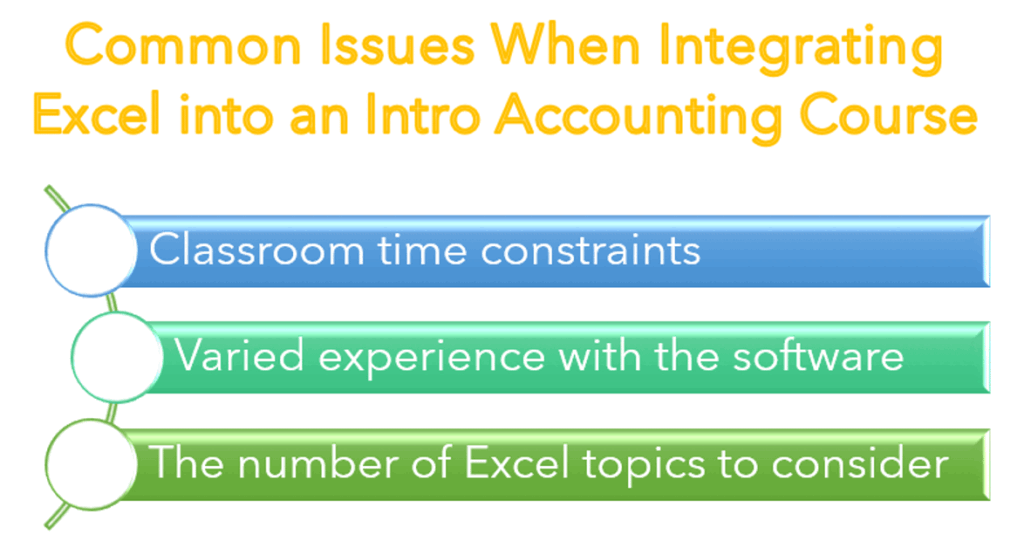
Lastly, even in the dream scenario of sufficient time to teach Excel to an audience with similar levels of prior experience with it, deciding on which Excel topics to focus our limited time remains a complication. Employers indicate that their new hires are not sufficiently trained in Excel, but in what areas the training is lacking remains an unknown. From creating basic formulas to using advanced tools such as PivotTables and Solver, to knowing how to tackle an Excel-based assignment, the landscape is seemingly endless.
Accounting educators know that while simply following a standard set of Excel topics when supplementing our introductory accounting courses would be straightforward to do in the classroom, it just will not provide the needed benefit to our students. So, now what?
Balancing the Books

Labyrinth Learning, a leader in providing educational materials for more than 30 years, has recognized these challenges and developed a comprehensive set of materials designed to supplement financial accounting, managerial accounting, and principles of accounting courses. These companion materials address the primary challenges faced by educators when incorporating Microsoft Excel into an introductory accounting course by covering the right topics in the right way, offering plenty of practice, and making spreadsheet design a focus.
Excel Topics That Align With Accounting Topics
When exposing students to Excel in an accounting course, it’s important to remain focused on the key content students are to internalize in the course. That’s why Labyrinth’s Excel companions provide instruction, procedural tables, and spot-check autograded practice assignments that mirror the content taught in your introductory accounting courses — all within the Excel environment.
The main part of each module is the video content. Some videos focus on quickly explaining how to use Excel, while others provide walkthroughs of that module’s exercise, ensuring students are fully supported with explanatory content as they complete each module’s assignments.
By offering efficient, video-based instruction, and ensuring that the content provides additional accounting practice to students learning these key introductory accounting concepts, Labyrinth’s materials ensure that Excel can be brought into the classroom with minimal time diverted from teaching the most important core accounting concepts.
Practice, Practice, Practice
Furthermore, each module includes not only an illustrative example, on which video instruction is based, but also five practice exercises (structured in the same manner as the example) so students have plenty of opportunity to work in Excel. These assignments can be used in whatever manner the educator sees fit: as classroom assignments, group assignments, homework assignments, or assessment tools. Perhaps more importantly, these extensive practice opportunities allow the course to be tailored to individual student needs. While students who have a more extensive Excel background may benefit from completing only a few assignments, students with less experience can work through them all to ensure they fully grasp the content.
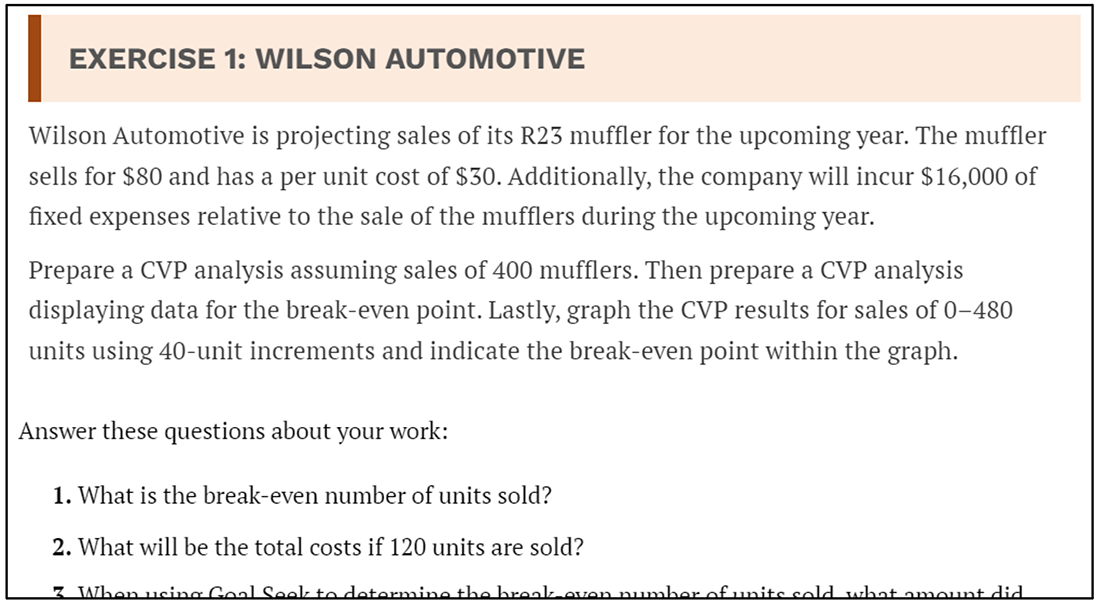
Presentation Is Key
Specific student populations will benefit from focusing on different Excel topics. This is why a wide variety of topics are covered within the modules. But that’s not all. The majority of Microsoft Excel textbooks provide some form of step-by-step instructions, but they rarely focus on how to develop an Excel spreadsheet from scratch. Students learn what to click and type to change the appearance of a cell or to enter a formula, but they don’t gain an understanding of how to put together spreadsheet elements in a manner that enhances readability and comprehension. If a new hire writes the perfect Excel formula but presents it to their employer or colleagues within a confusing poorly structured worksheet, the benefit of the formula is lost. Employers want students to be capable of creating worksheets without step-by-step instructions. The Labyrinth companions first explain and show how to create a spreadsheet, and then provide opportunities for students to do it on their own. Students do this not by following detailed steps on what to click where, but by making sound decisions based on the discussions and examples provided.
Spreadsheet design is, in many ways, more important in a work environment than the majority of Excel topics we teach our students. This often-overlooked skill is stressed in our materials so that students can hit the ground running upon graduation.
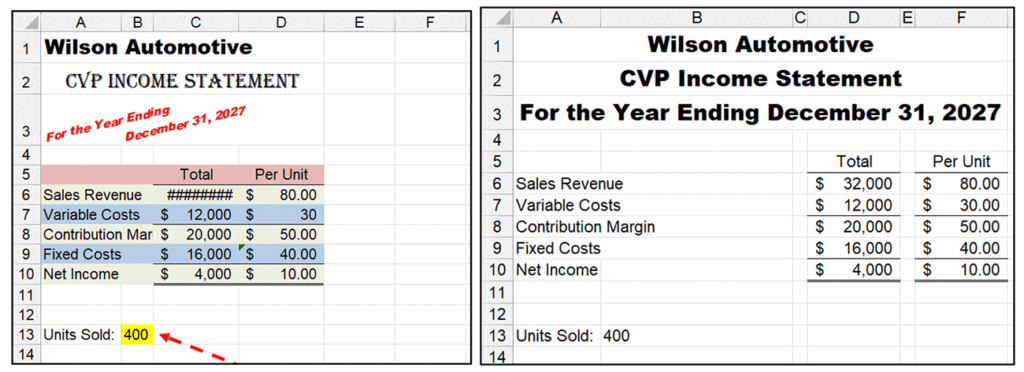
The Labyrinth Learning Excel Companions
Each companion title is made up of a series of topic modules that follow the same pattern:
- Spreadsheet Skills – Video Tutorial and Reference Tables
- Illustrative Example – Example Walkthrough Videos
- Practice Exercises (5)
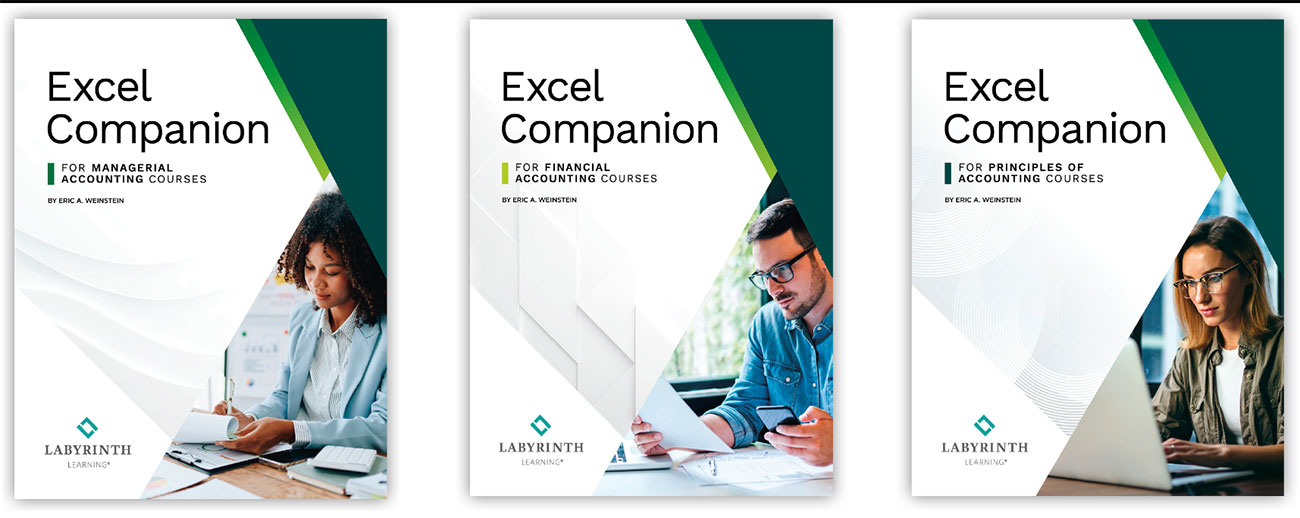
Topics Covered
(Managerial)
Job Order Costing
Process Costing
CVP Analysis
Capital Projects
Determining Variances
Statement of Cash Flows
Financial Statement Analysis
Topics Covered
(Financial)
The Accounting Cycle
Inventory Costing
Bank Reconciliation
Aging of A/R
Depreciation Expense
Payroll Register
Bond Amortization
Topics Covered
(Principles)
(Includes topics from the Managerial & Financial Companions)
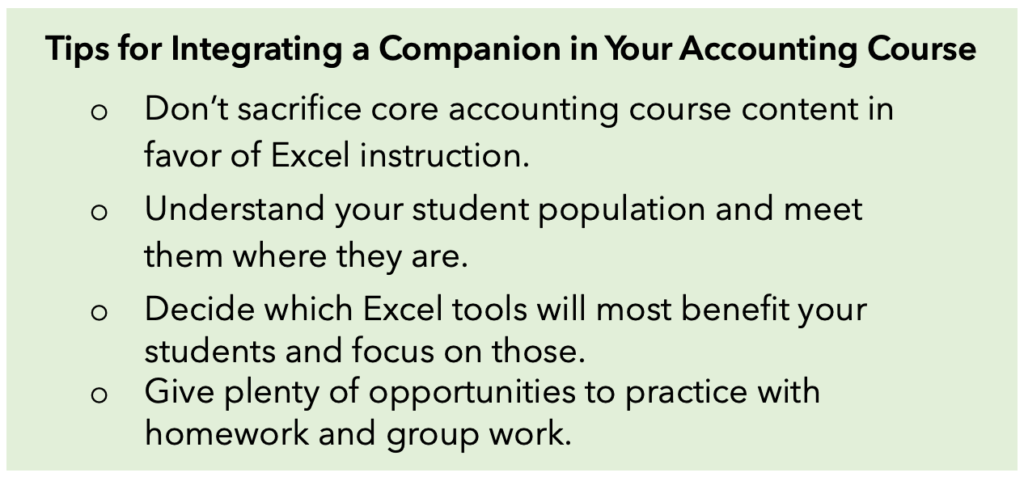
Conclusion
Although many other spreadsheet and data visualization programs are used on the market today, knowledge of Excel continues to be vital for accounting graduates. As educators, we must respond to the feedback from employers and better prepare our students to use this tool in a professional environment. By incorporating Labyrinth Learning’s new Excel companions into your introductory accounting courses, you will be accomplishing this goal and providing students with a set of skills that allow them to outshine their professional peers for years to come.

Educators can now request review copies of the Excel Companions for Financial, Managerial and Principles of Accounting Courses, available for classes in June 2024.
